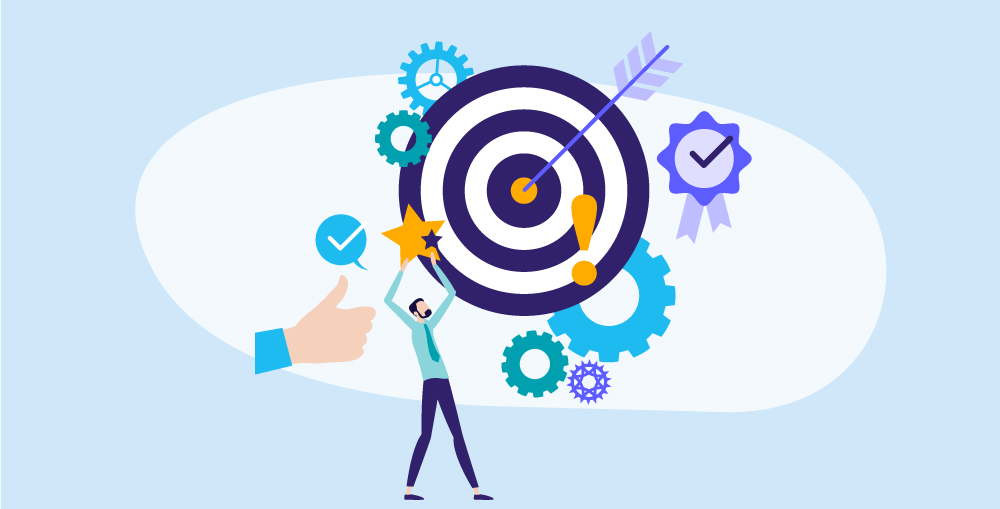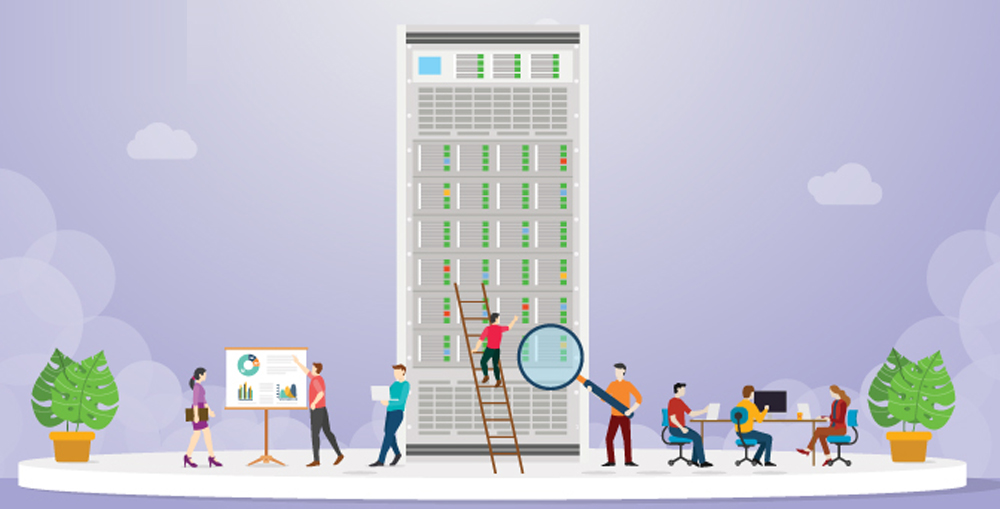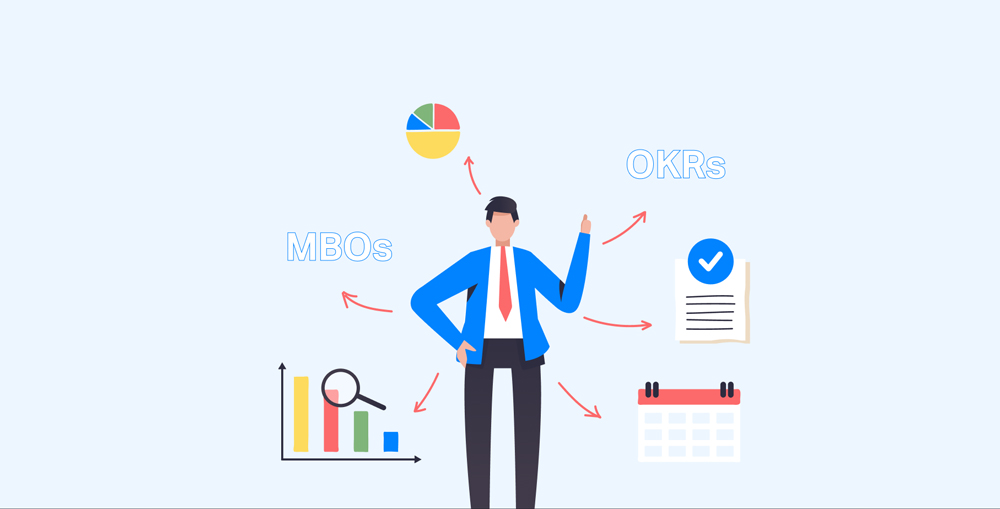Performance management is one of the most important HR function, businesses and organizations strive to adopt to methods, ways and solutions that can enhance their productivity, operational efficiency and quality of work. The employee performance matters a lot for business growth, every business and organization wants to achieve a sustainable growth, for that the employee retention, satisfaction and high-performance is absolutely essential. High performing teams produce high-quality work, which inspire and attract customers and make them loyal to your brand. Earlier the performance management processes were carried out manually, which was very inefficient and eventually both employees and managers lost trust from manual practices. This lead to the creation of digital performance management systems and HR solutions.
The digital performance management systems are serving as a backbone for the modern enterprises. Businesses in Dubai, Sharjah, Abu Dhabi and all around the UAE have started adopting to digital performance management systems and HR solutions very early, now a days, such solutions have become so common, however, there are still businesses who are either stuck in old practices or haven’t moved to modern performance management systems. In this blog we will discuss how a modern performance management system can enhance organizational culture resulting in elevated employee performance and higher operational efficiency.

What is a Digital Performance Management System?
A digital performance management system is a software-based comprehensive framework and strategy which enable businesses to systematically monitor, measure and enhance organizational performance. The modern performance management system offers tools and mechanisms to efficiently execute performance management related tasks. It provides, real-time performance data coming from a multitude of systems and touch points, which is analyzed with in-built analytical tools and AI engine to provide performance data in interactive and intuitive dashboards. The HR team is responsible for conducting several performance management related tasks, which often are time-consuming and required a lot of efforts, this raise the cost of performance management and at the same time it also make the process more inefficient and inaccurate.
The digital performance management system on the other hand automatically collects data from various sources, minimize the human factor by significantly reducing manual work, bringing transparency and accuracy in the performance management process. It provides a comprehensive framework to setup goals, put monitoring mechanisms in place, provide automated reports and performance analytical data and help enhancing performance management function. Businesses can greatly enhance various performance management related processes such as performance appraisals, feedbacks and reviews, setting up goals and objectives, monitoring KPIs and progress, identifying hurdles and problems, enhancing employee development program, improving employee satisfaction and retention and much more.

How Performance Management System can Improve Organizational Culture?
The organizational culture is one of the most crucial factor which is often overlooked. The organizational culture have huge impact on employee behavior, attitude, and happiness and consequently the overall business success. A modern performance management system helps streamlining and improving various processes which have direct impact on organizational culture. A positive and productive organizational culture ensures employees are satisfied, valued, motivated, appreciated, engaged and recognized well. A performance management system provides high-tech tools and intuitive processes which majorly helps in the following core performance management processes:
- Defining success, clear expectations, SMART goals and individual objectives
- Communicating and relating individual objectives and goals with high-level organizational goals
- Real-time monitoring and performance data collection with intuitive analytical tools
- Continuous feedback and reviews, contextual performance and much more
- Identifying problems, strengths and weaknesses and help making informed decisions
- Designing effective and comprehensive employee development programs
- Identifying high-performer, acknowledging their performance with effective reward programs
Apart from that, the performance management systems also help in various HR processes and with the ability to digitalize and automate the performance management process itself become very efficient, impactful and cost-effective.

What are the Key Benefits of Implementing a Modern Performance Management System?
Here are the key benefits of implementing a modern performance management system that positively impact the organizational culture:
- Driving Productivity: A performance management system can greatly increase productivity in any organizational culture by streamlining communication, increasing and encouraging collaborations, and high focus on the result-oriented progress. A highly engaged workplace lead to higher performance and it empowered employees to deliver their best efforts.
- Raising Employee Satisfaction: For any successful organization the importance of employee satisfaction is paramount. The performance management system enhance reward and recognitions processes encouraging employee to perform well by recognizing their achievements, providing them new opportunities, and fostering a culture of constructive feedbacks.
- Better Employee Retention: For any business or organization the employee retention is crucial, in order to retain employee the businesses must provide them a positive organizational culture. The performance management system boost communication, enhance collaboration, encourage efforts, develop employees’ skills and provide them more opportunities to grow.
- Align Employee Goals: The primary goal of any performance management system is to improve the overall performance of the business. For that it is extremely important that all the employees put their efforts in the right direction. The performance management system helps aligning individual employee goals with the high-level organizational goals and strategic objectives.
- Transparent Appraisal System: The transparency and accuracy is the core functionality of any performance management system. The appraisal process is a crucial aspect of performance management and it has profound impact on employee performance and satisfaction. A bias-free, effective and transparent appraisal system can greatly boost employee performance.
- Fair Rewards and Recognitions: Employee often complain of bias in traditional and manual performance management systems. The digital performance management system eliminates that and make reward and recognition processes fair and transparent. The employees are rewarded solely based on their performance criteria while all metrics are made available to them.
In the modern day business landscape the employees demand more frequent evaluation and continuous feedback from their managers. The Gen Z. is too impatience, they want instant gratification. This can be achieved only when you have an effective and efficient performance management system.

What are the Key Elements of a Modern Performance Management System?
A modern performance management system comes with several features which are very helpful in performance management process, administrative and management tasks as well as carrying out some regular HR tasks. Usually a performance management system is customized or tailor-made for any organization to align with their unique and exclusive needs. However, there are some elements that are inherent to any modern day digital performance management system:
- Setting Goals: Setting up clear, realistic, measurable, and achievable goals for the employees gives them a sense of direction and purpose. When the employees know what is expected from them or what success looks like, they tend to perform better. The performance management system facilitate setting up SMART goals, while ensuring a perfect alignment between individual goals, and high-level organizational goals. This greatly improves overall performance.
- Frequent Feedbacks: One of the biggest advantage of a performance management system is that it provides a comprehensive framework to encourage frequent feedbacks. Frequent and constructive feedback raise employees’ moral and encourage them to perform well. In most modern performance management system frequent and continuous feedbacks are common and can greatly enhance the impact of a performance management system on organizational culture.
- Appraisal Process: The performance appraisal process is one of the most important and crucial process of a performance management system. It helps management evaluate employees, acquire a deeper insight to their strengths and weaknesses. A systematic and fair performance appraisal process ensures the evaluation is fair, transparent, and based on pre-set criteria. It also provides a system of constructive feedback, coaching and it aids decision making process.
- Employee Development: The employee development programs are crucial to unlock the true potential of the workforce. A digital performance management system accurately identifies the strengths and weaknesses of the employees and provide them with the continuous coaching, opportunities to learn and grow which enables them to acquire new competencies and skills. This includes offering mentoring, training, resources and tools to enable them perform well.
- Reward and Recognition: Higher level of motivation and engagement are essential to high performance, and for that a fair and well-designed reward and recognition program/process is absolute necessity. A performance management system provides a systematic approach to align rewards with performance while ensuring the performance is fully aligned with high-level organizational goals. Recognizing achievements and offering incentives elevates organizational culture and consequently the overall performance of the organization.
There is a strong correlation between employee performance and organizational culture. Happy and satisfied employees tend to be more loyal and have greater potential to grow and excel. A high-performing workforce requires a strong, positive and productive organizational culture which can only be achieved by effective performance management. A digital performance management system provides integrated solution, has ability to collect performance data in real-time and it offers multiple dashboards for monitoring. It also elevate several internal processes which results in better communication and higher collaboration. Employee goals can be aligned with high-level organizational goals and with help of real-time data monitoring tools the course correction is seamless which is essential for higher outcomes. These features and benefits made performance management system absolutely essential.

Conclusion
An effective digital performance management system have transformative impact on organizational culture. It is a combination of integrated digital tools, data collection and analytical tools, coupled with most modern performance management tactics and practices. The traditional performance management systems and annual appraisal reviews are very time consuming, require a lot of efforts, and are inaccurate which results in distrust and prompt businesses to shift to most modern practices and digital solutions. A modern performance management system on the other hand can greatly improve the efficiency and efficacy of the performance management process and help businesses greatly improve the organizational culture. A positive, strong and productive organizational culture foster high-performing teams. The digital aspects of the performance management system empower employees and increase engagements.
The business goals and individual goals should be fully aligned in order to produce higher outcomes. This has become very easy with the help of an effective digital performance management system. On top of that it elevate fairness and transparency resuming faith in the system and also help businesses to minimize employee turnover. All these features help enhancing organizational culture and bridge the gap between employees and managers fostering a more connected and collaborative work environment. In this blog we have discussed how an effective performance management system can positively impact organizational culture and boost overall performance of the organization. If you want to learn more about the subject or if you want our help to design and implement a bespoke and highly cost-effective performance management system for your business, please feel free to contact us through our Contact Us page or leave a comment in the comment box below and we will get in touch with you soon.




